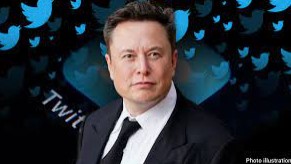



Some 57% of his 17.5 million followers responded saying that he should abandon the post rather than stay on as Twitter's chief executive. Musk has abided by the results of his polls in the past.
Musk’s reign at Twitter has been marked by what critics describe as chaos, fueled by the brash executive's seemingly rash decisions that have disrupted the social networking platform.
Musk purchased Twitter in October for $44 billion. The Tesla (TSLA) CEO initially entered an agreement to buy the social media platform in April, then attempted to back out of the deal as the stock market turned sour. The about-face drew a lawsuit from Twitter that sought to force him to make good on the deal.
For his part, Musk countersued, arguing that he should be freed from the agreement because Twitter’s leadership refused to turn over documentation backing up the number of bots on the service. Musk agreed to buy the site just days before the start of a fast-tracked trial set to determine the fate of the dispute.
At the time, Musk made it clear that he had no intention of staying on as CEO for the long term.
Prior to buying the company, Musk regularly stated that he would turn Twitter into a free speech-first platform and referred to himself as a free speech absolutist. But Musk's stance spooked advertisers who feared tweets containing hate speech and disinformation would end up appearing next to their ads.
Major advertisers like GM (GM), Ford (F), Novartis AG (NVS), Oreo maker Mondelez (MDLZ), and United Airlines (UAL) pulled their ads from the social network. Twitter generates the vast majority of its revenue by selling ads.